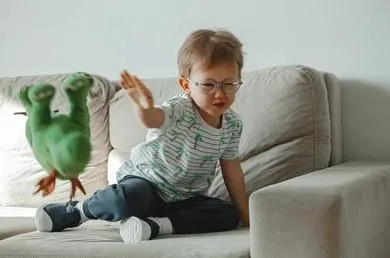
Do vs. Don’t: The Power of Positive Language in Parenting Your Autistic/ADHD Kid
Have you ever told your child, “Don’t hit,” only to watch them hit seconds later? They’re not trying to defy you; they may not have heard what you meant.
Kids often don’t register the word “don’t.” When we say “Don’t run,” “Don’t yell,” or “Don’t hit,” their brains skip straight to the action and hear run, yell, hit.
Instead of stopping the behavior, we may be unintentionally reinforcing it.
So what can we do instead?
We reframe.
Instead of focusing on what we don’t want, we clearly say what we do want:
❌ Don’t hit → ✅ Use gentle hands
❌ Don’t throw toys → ✅ Be gentle with your toys
❌ Don’t run → ✅ Walk slowly and carefully
It helps our kids’ brains in more ways than one. I have heard countless times from neurodivergent people that they thrive on clear language. That’s what this is about. They can understand expectations clearly because of our word choice. Positive language gives them something they can succeed at. With repetition and modeling, it also builds their confidence.
I’ve used this with my own kids.
When my son used to throw toys when he was upset, telling him “Don’t throw” did nothing, but when I started saying, “Please be gentle with your toys,” and actually showed him what that looked like, he started to learn. It did not happen overnight, but he got it over time and with consistency.
Want to try this in your home?
Here are 3 quick tips:
1. Redirect with clarity: Instead of saying what not to do, offer an alternative action immediately.
2. Keep it simple and specific: Say exactly what you want them to do in clear, concrete terms.
3. Be consistent: The more you do it, the more natural it becomes for you and your kids.
Here’s your challenge: What’s one “don’t” statement you say a lot? Can you reframe it into a “do” this week?
For example, instead of “Don’t push your brother,” I’m going to say, “Be kind to your brother. This is what kindness looks like.”
If you want more help with this kind of positive parenting strategy, join me for our upcoming Parenting Power Hour. We meet every second Thursday of the month, and we’d love to have you.
